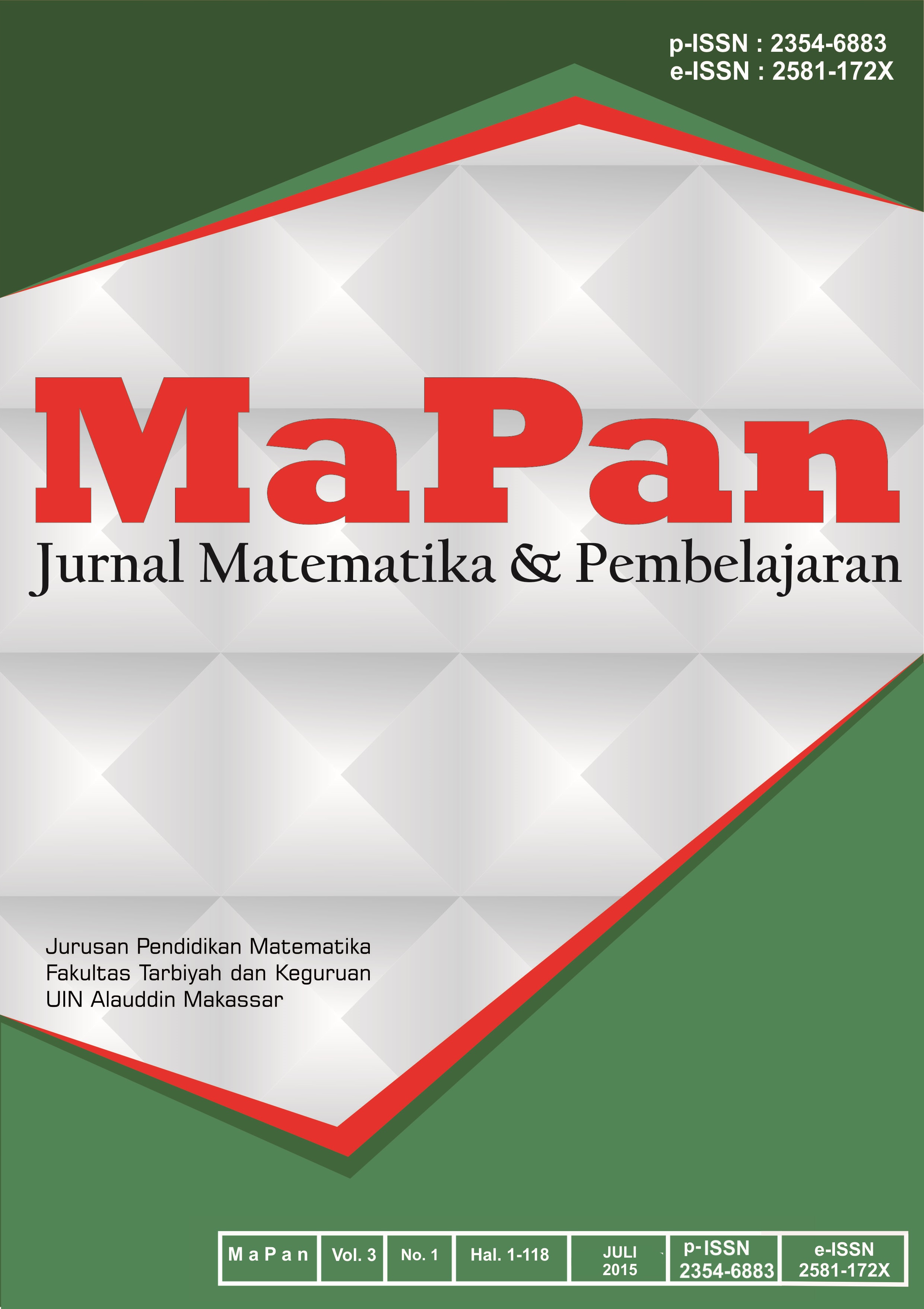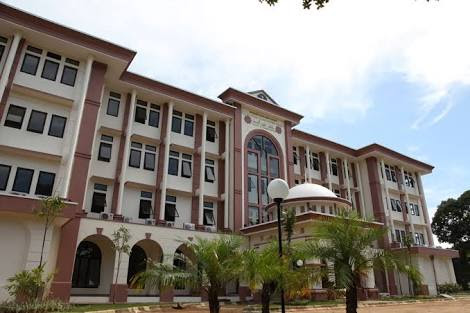PENGARUH POLA ASUH ORANG TUA, GAYA BELAJAR, DAN MOTIVASI BERPRESTASI TERHADAP PRESTASI BELAJAR MATEMATIKA SISWA MTsN SE-MAKASSAR
Abstract
This research aimed to examine the direct influence and the interaction influence among the parenting style, learning style, and achievement motivation on students’ mathematics learning achievement. This research is ex-post facto research. The population of this research was the students of Madrasah Tsanawiyah Negeri (MTsN) Makassar consisted of 2 schools. Sample was selected by employing purposive random sampling and obtained 4 classes. Technique of analysis which is used is mixed variables regression technique of analysis. The results of the research reveal that (1) the students’ mathematics learning achievement with authoritarian parenting style has no significant difference on the students’ mathematics learning achievement with authoritative parenting style; however, it is better than the student’ mathematics learning achievement with permissive/indulgent or rejecting/neglecting parenting styles. (2) the students’ mathematics learning achievement with visual learning style has no difference on the students’ mathematic learning achievement with auditory learning style; however it is better the students’ mathematics achievement with kinesthetic learning style. (3) the achievement motivation has positive influence on student mathematics learning achievement, (4) there is no interaction influence of parenting style and students’ learning style on mathematics learning achievement, (5) there is no interaction influence of parenting style and students’ motivation achievement on mathematics learning achievement, (6) there is no interaction influence on students’ learning style and achievement motivation on mathematics learning achievement, (7) there is no interaction influence of parenting style, learning style, and achievement motivation on mathematics learning achievement.
Downloads
References
Abesha, A. G. (2012). Effects of parenting styles, academic self-efficacy, and achievement motivation on the academic achievement of university students in Ethiopia. Unpublished Dissertation. Perth, Western Australia: Edith Cowan University
Boyatzis, R. E. (2000). David C. McClelland: Biographical statement and synopsis of his work. Weatherhead School of Mgt. Case Western Reserve University August 15, 2000. University in Cleveland, Ohio.
DePorter, B., & Hernacki, M. (2002). Quantum learning. Bandung: Kaifa Mizan Pustaka.
Kołodziej, S. (2010). The role of achievement motivation in educational aspirations and performance. Poland: Kozminski University.
Mullis, I. V. S., Martin, M.O., Foy, P., & Arora, A. (2012). TIMSS 2011 international results in mathematics. TIMSS & PIRLS International Study Center: Lynch School of Education, Boston College
Ormrod, J. E. (2008). Psikologi pendidikan: membantu siswa tumbuh dan berkembang. Jakarta: Erlangga.
Raehana, S. (2012). Pengaruh regulasi diri, motivasi berprestasi, iklim keluarga, dan efikasi diri terhadap prestasi belajar matematika siswa kelas X SMA Negeri di Kota Makassar. Tesis. Tidak Dipublikasikan. Makassar: Program Pascasarjana UNM.
Tempo. (2012). Siswa SMP tak lulus matematika, (online). (http://www.tempo.co/read/news/2012/06/03/079408015/1330-Siswa-SMP-Tak-Lulus-UN-Matematika/, Diakses 18 Januari 2014/)
Tim Penyusun. (2008). Kamus bahasa Indonesia. Jakarta: Pusat Bahasa Departemen Pendidikan Nasional.
Tiro, M. A. (2011). Analisis regresi dengan data kategori. Makassar: Andira Publisher.


